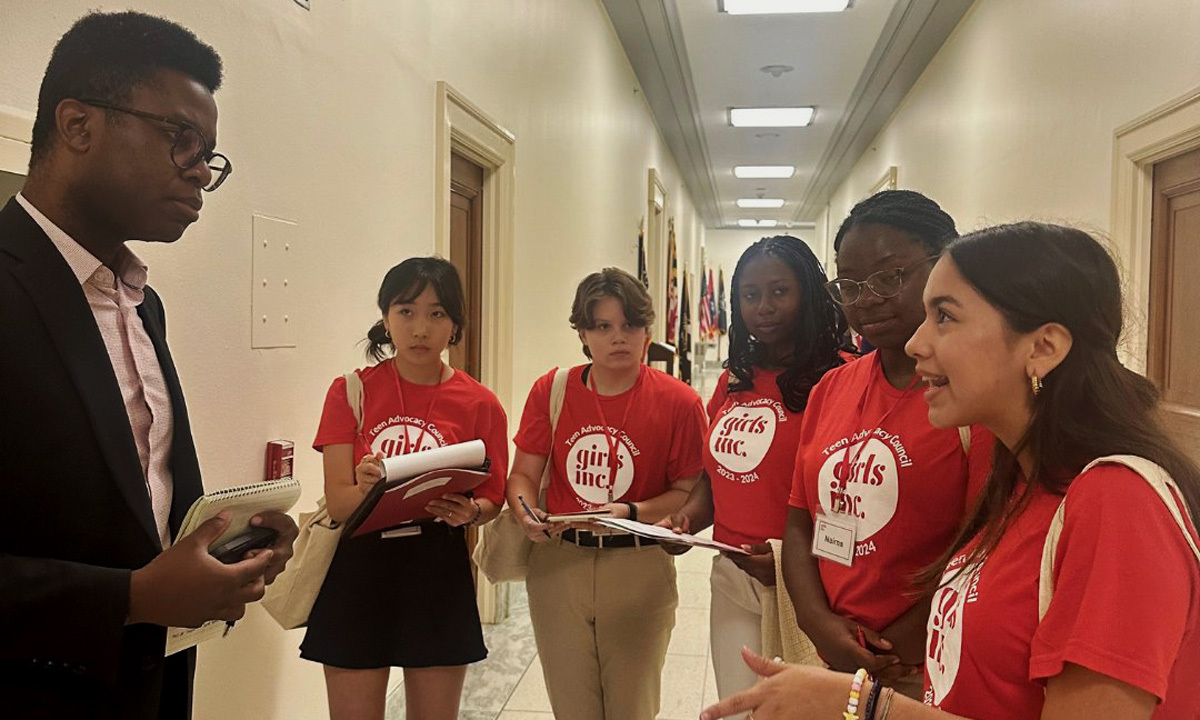Young People Get Voting. They Are Less Sure About How to Exercise Their Voice
Before we even begin to worry about whether or not young people are voting, we need to double down on whether young people feel heard.

Get stories like this delivered straight to your inbox. Sign up for The 74 Newsletter
It is a bromide in a presidential election year to fret that young people will not turn out to vote, and that the election will therefore be dominated — as in so many past years — by wealthy older voters.
As thoughtful observers have already pointed out, that notion is — statistically and philosophically — a red herring. Young people ages 18 to 30 appear likely, at least in terms of numbers and passion about issues, to play a larger role in the 2024 election than has been true in elections over the last several decades.
There is a much more urgent issue to tackle this year than voting participation by young people. The next generation (who, by the way, long ago rejected the “Gen Z” label) does believe that its vote matters. For young people overall, according to one recent survey from the Institute for Citizens & Scholars, at least 68% of them think their vote counts, but over half (57%) are dubious about democracy itself.
Today’s youngest voters have never experienced democracy and its political process as the opportunity to voice ideas, be heard, learn from different perspectives, and take part in compromise. For their entire lifetimes, they have seen two corporate parties engaged in polarized gridlock, vicious contention, and social media manipulation, all ruled by a four-year cycle that plays out on a Super Bowl-like stage with unreliable outcomes and even, on Jan. 6, physical violence.
No wonder they’re inclined not to trust democracy, or at least not to believe those of us in older generations who keep telling them it is a great thing and they should participate. Meanwhile, those of us who are older, who have privilege and influence and who experience the world as working for us, cannot understand the perspective of young people growing up in a world that does not reliably support them. Especially for women, young people of color, and those raised in poverty, it is difficult to imagine that government could ever truly work for them. It is no surprise, then, that another recent study from Supermajority found that more than 90% of young women do not believe the government and political system work effectively. For these disenfranchised populations, it is tempting to tap out.
This generation does not want to be told about the power of democracy so much as shown. They need to be able to kick the tires. They need to see it work for them, and they need to be able to engage. Where democracy is concerned, that means giving young people more opportunities, and more preparation, to take part in conversation—to come to the table, express opinions, field arguments and find solutions.
To be sure, that kind of democratic participation, the participation of voice, requires not just the occasion to speak and listen, but also the skills to do so. Events on college campuses over the past decade — certainly over the past 10 months, since the outbreak of the Israel-Hamas war — have made it clear that we have a ways to go in helping them learn and practice those skills. Precisely because they have grown up with a hyperpolarized, dysfunctional political environment and an omnipresent social media culture, they have learned a great deal more about how not to engage, from shouting down speakers to creating no-win situations for institutional leaders to bullying and canceling on their social feeds.
Some of us who grew up in the aftermath of the Civil Rights Movement and the Vietnam War may romanticize college as the time to learn to speak out, debate and engage. But as these recent experiences show, college is now too late for young people to learn these skills.
Instead, we need to begin in middle school to create an environment where young people learn to speak and listen. They will not naturally develop these skills online, where algorithms enable — even encourage — them to filter out a range of perspectives. They will not learn them in classrooms where teachers and students alike are afraid to speak up for fear of being canceled or disciplined, with or without restrictive statutes governing speech on controversial issues. And they will not learn as long as they are allowed to think that disagreement with their opinions, especially heated disagreement, is equivalent to physical and mental harm that must be avoided at all costs.
Schools and out-of-school-time programs need new emphases on civic conversation, media literacy and discussion across differences, including both safe spaces and brave spaces in which to experiment. For that matter, the local venues where deliberation starts — town councils, school boards, even homeowners associations and church councils — should create seats at the table for young people to observe and take part. This is especially critical in communities where underrepresentation has been a systemic, historic issue. But, in truth, young people raised in any community where their voices don’t matter will be all the more likely to opt out of participation.
Before we even begin to worry about whether or not young people are voting, we need to double down on whether young people feel heard, whether they know how to make themselves heard in productive ways and whether we know how to listen and respond. Making sure that the next generation knows how the system works, and sees that it can work for them in a very local, personal way, is the best means of getting them to use democracy, rely on it and expect the best from it.
Get stories like these delivered straight to your inbox. Sign up for The 74 Newsletter

;)